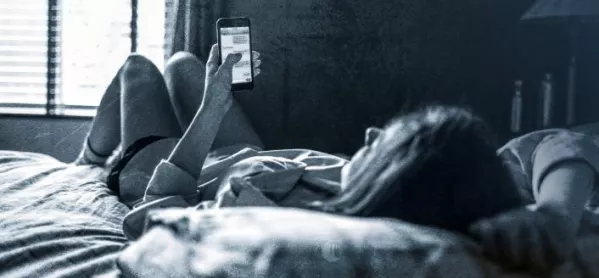Criticism that internet giants can stop indecent images of children circulating online is unfair, a senior Google executive has said.
Google UK’s head of child safety, Claire Lilley, told MPs today that tech firms were doing all they could to stop sexual images of school children being shared online.
“Technology is not going to be a silver bullet, we need a multi-pronged approach,” she told the House of Commons Science and Technology Select Committee.
Asked if she thought the head of the National Crime Agency’s accusation that tech firms could end the proliferation of indecent images of children online if they tried was unfair, she said: “Yes, I do.”
Last month home secretary Sajid Javid issued a call to action for technology companies such as Facebook, Twitter and Google to help combat online child sexual abuse.
The push follows mounting research highlighting how widespread the use of social media is among pupils, and its potentially damaging effects.
A recent poll of 20,000 pupils found they are sharing jokes about rape, slavery and the Holocaust on social media accounts hidden from parents and teachers, as part of a growing “dark-meme culture”.
In February the science and technology committee launched an inquiry to gather evidence from the public, experts and tech companies on the problem.
Executives from Facebook, Twitter and Google were questioned today about how they handle reports of inappropriate material, the steps they take to remove illegal content, and regulation.
Karim Palant, Facebook’s UK public policy manager, said laws around child pornography meant many pupils were too scared to report sexual images of themselves being shared online.
“Young people could effectively criminalise themselves,” he said.
Twitter’s vice-president of public policy and communications, Sinead McSweeney, pointed out that 99 per cent of content being investigated by police was shared on low-profile, largely unknown platforms.
Ms Lilley also warned against knee-jerk regulation, arguing that many lonely young people rely on social media to feel connected.
“Legislation and policymaking need to be based on that solid evidence otherwise there really is the danger of having unintended consequences,” she said.
“There are very many children who engage in social media because it is a lifeline to them and we really need to be circumspect about the limitations we potentially put on that”.




